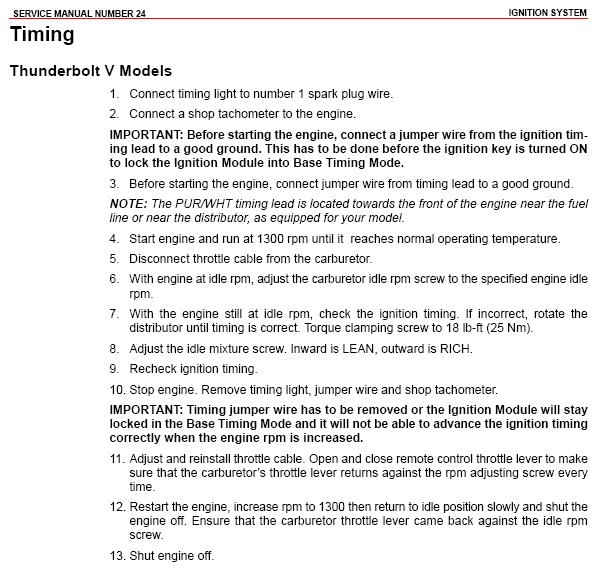I have a 2003 2452 Bayliner Classic with a 5.0 Mercruiser. The engine was dying when not fully warm when shifting gears. So next time I started it up, let it warm up to near normal engine temp in the boat house, adjusted the idle set screw a bit faster to 700 rpm. Tested it and it did not die at all when shifting. The momentary kill when shifting from in gear to neutral is working fine. Just a momentary kill.
Then we took it out and ran it at cruise for an hour or so. When I pulled it back to idle, it was idling at about 1200 rpm - way too high. Had to quickly adjust the idle set screw back down to 700 or so in neutral. Now I am afraid the next time I start it up cold - i'll have the same problem with a low idle. I carefully inspected the idle set screw and the choke cam that the idle screw sits on. I was amazed to find that there is no slope to this cam. The cold choked setting for idle is the same for hot. I am wondering why this is so.
I had another Mercriuser - a 95 Bayliner 2655 a few years ago and had the same problem - died when shifting before fully warm, but lived with it.
Can anyone advise what may be going on here and how to have an engine that doesn't die when shifting, but idles properly when fully warm. Thanks.
Doug M
Then we took it out and ran it at cruise for an hour or so. When I pulled it back to idle, it was idling at about 1200 rpm - way too high. Had to quickly adjust the idle set screw back down to 700 or so in neutral. Now I am afraid the next time I start it up cold - i'll have the same problem with a low idle. I carefully inspected the idle set screw and the choke cam that the idle screw sits on. I was amazed to find that there is no slope to this cam. The cold choked setting for idle is the same for hot. I am wondering why this is so.
I had another Mercriuser - a 95 Bayliner 2655 a few years ago and had the same problem - died when shifting before fully warm, but lived with it.
Can anyone advise what may be going on here and how to have an engine that doesn't die when shifting, but idles properly when fully warm. Thanks.
Doug M




















